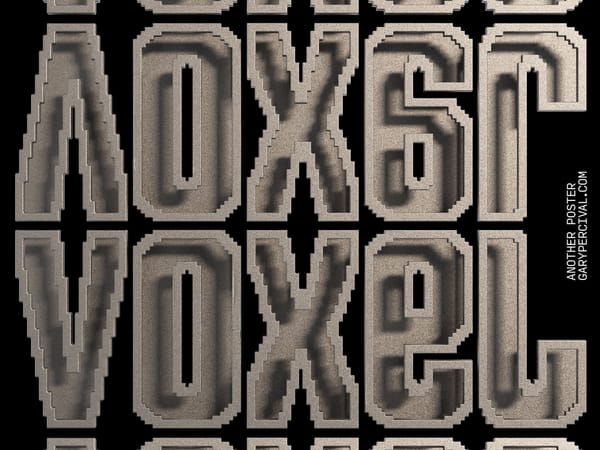The Fear of Asking: Do You Know Everything or Are You Afraid to Know?
“The greatest creators aren’t those who know everything, but those who are fearless in their pursuit of knowledge.”

As creatives, freelancers, and designers, we pride ourselves on being problem-solvers. We thrive on taking abstract ideas and transforming them into visuals, words, or experiences that communicate something profound.
But there’s a paradox we rarely talk about: the fear of asking questions.
It sounds counterintuitive, doesn’t it? We’re supposed to be curious, constantly pushing the boundaries of our understanding. Yet for many of us, the fear of asking—whether for clarity, help, or feedback—looms larger than our hunger for growth.
This post explores:
- Why creatives hesitate to ask questions
- How this fear stifles our progress
- How embracing vulnerability can fuel growth
The Ego of Expertise
In the creative field, expertise is often seen as currency. Clients hire us for our knowledge, experience, and ability to bring their vision to life. Whether you’re a graphic designer, freelancer, or any other creative professional, there’s an unspoken expectation that we should always have the answers.
This creates a subtle but dangerous mindset:
If you admit you don’t know something, you risk damaging your credibility.
It’s rooted in the belief that our expertise must be impenetrable, and showing uncertainty makes us look weak. We end up convincing ourselves that asking questions signals incompetence.
But true expertise isn’t about having all the answers. It’s about recognising what you don’t know and having the humility to seek clarity.
The fear of asking can trap us in a bubble, where we’re more focused on preserving the illusion of expertise than genuinely expanding it.
The Creative’s Fear of Criticism
At the heart of the fear of asking is another familiar fear: the fear of criticism.
When we ask questions, we expose gaps in our knowledge. For many creatives, this is terrifying because our work feels personal. By asking for feedback, we risk hearing:
- Our idea isn’t as strong as we thought.
- Our execution falls short.
- We’re moving in the wrong direction.
This fear can be paralysing. Instead of seeking input, we push through projects, hoping to get it right on instinct alone. But in doing so, we miss out on an essential part of the creative process: collaboration.
Great work rarely happens in isolation. It’s refined through questioning, feedback, and iteration.
Asking for input doesn’t weaken your creative vision; it strengthens it by challenging assumptions and opening you up to new perspectives.
The Curse of Imposter Syndrome
Then there’s imposter syndrome, which haunts freelancers and creatives at every level.
Even after years of experience, many of us feel like we’re winging it, fearing we’re not as talented as others believe. Imposter syndrome thrives on silence, convincing us that asking questions will expose our inadequacies.
Ironically, the more successful we become, the more this fear intensifies. As we rise in our careers, the stakes feel higher, making it harder to admit what we don’t know.
But imposter syndrome is an illusion. It convinces us that everyone else has it figured out, when in reality, they’re just as unsure as we are.
By refusing to ask questions, we rob ourselves of the opportunity to grow into the expert we already are.
The Culture of Busyness
In the freelance and creative industries, there’s a pervasive culture of busyness. We glorify hustle and wear our full calendars as badges of honour.
This discourages us from asking questions. We often think:
- Everyone is too busy to answer our questions.
- We should figure it out on our own.
But the culture of busyness is a myth that leads to burnout and inefficiency. Asking questions saves time. When we seek clarity early, we avoid endless revisions caused by guessing what a client or collaborator wants.
Taking the time to ask the right questions upfront ensures our work aligns with expectations and reduces the likelihood of costly mistakes later.
The Cost of Not Asking
The real danger isn’t in asking questions; it’s in not asking them. When we let our fear of asking hold us back, we make assumptions that can lead to:
- Errors
- Misunderstandings
- Missed opportunities
We risk producing work that doesn’t meet the client’s needs because we are too afraid to ask for clarification. Worse, we stagnate, repeating the same mistakes because we’re too proud or fearful to seek guidance.
In the long term, the cost of not asking is far greater than any discomfort or vulnerability we might feel in the moment.
- Our creative work suffers.
- Our professional relationships become strained.
- We limit our potential for growth.
Reframing the Act of Asking
How do we break free from this fear and embrace the power of asking? It starts by reframing asking questions as a strength rather than a weakness.
1. Questions Lead to Expertise
Asking questions shows you’re committed to building your craft. The more you learn, the more you realise how much there is to know.
Questions aren’t a reflection of ignorance; they’re a reflection of curiosity and a desire to continually improve.
Whether you’re asking a client for clarity or seeking advice from a peer, remember that every question you ask brings you one step closer to true expertise.
2. Vulnerability is a Creative Strength
Vulnerability is at the core of all creative work. Every time we share a design, pitch an idea, or present a concept, we’re putting a piece of ourselves into the world.
Asking questions is another form of vulnerability. But instead of seeing it as a weakness, recognise it as a strength.
When you ask for help, feedback, or clarity, you’re opening yourself up to new possibilities and growth.
3. Collaboration is Key
No creative work thrives in isolation, and no freelancer succeeds alone.
Collaboration is key to producing great work, and asking questions is a natural part of that process. Whether it’s reaching out to a mentor, engaging with a client, or seeking feedback from peers, asking questions facilitates collaboration and leads to better outcomes.
4. The Fear of Criticism is a Barrier to Growth
Yes, asking questions opens you to criticism, but remember that criticism isn’t an attack on your abilities. Constructive feedback is essential to improving your work, and the only way to get it is by asking.
By reframing criticism as a tool for growth rather than a personal failure, you can overcome the fear of asking and open yourself to new learning experiences.
Conclusion: Embrace the Power of Asking
In the creative world, asking questions should be celebrated, not feared. Whether you’re seeking feedback, clarification, or new perspectives, asking questions is essential for growth.
The next time you hesitate to ask for help, remember:
The greatest creators aren’t those who know everything, but those who are fearless in their pursuit of knowledge.
So, do you know everything, or are you just afraid to know?



